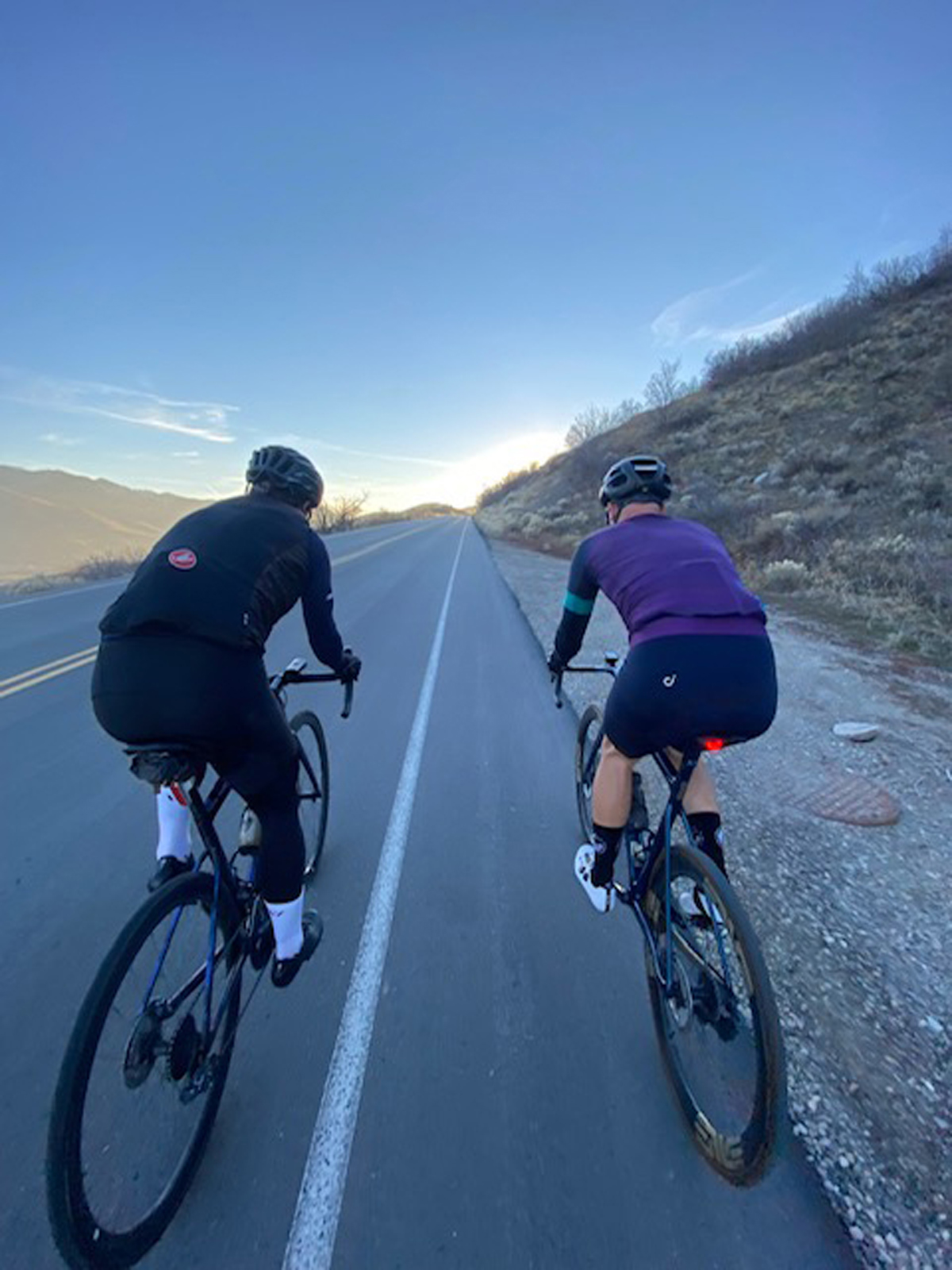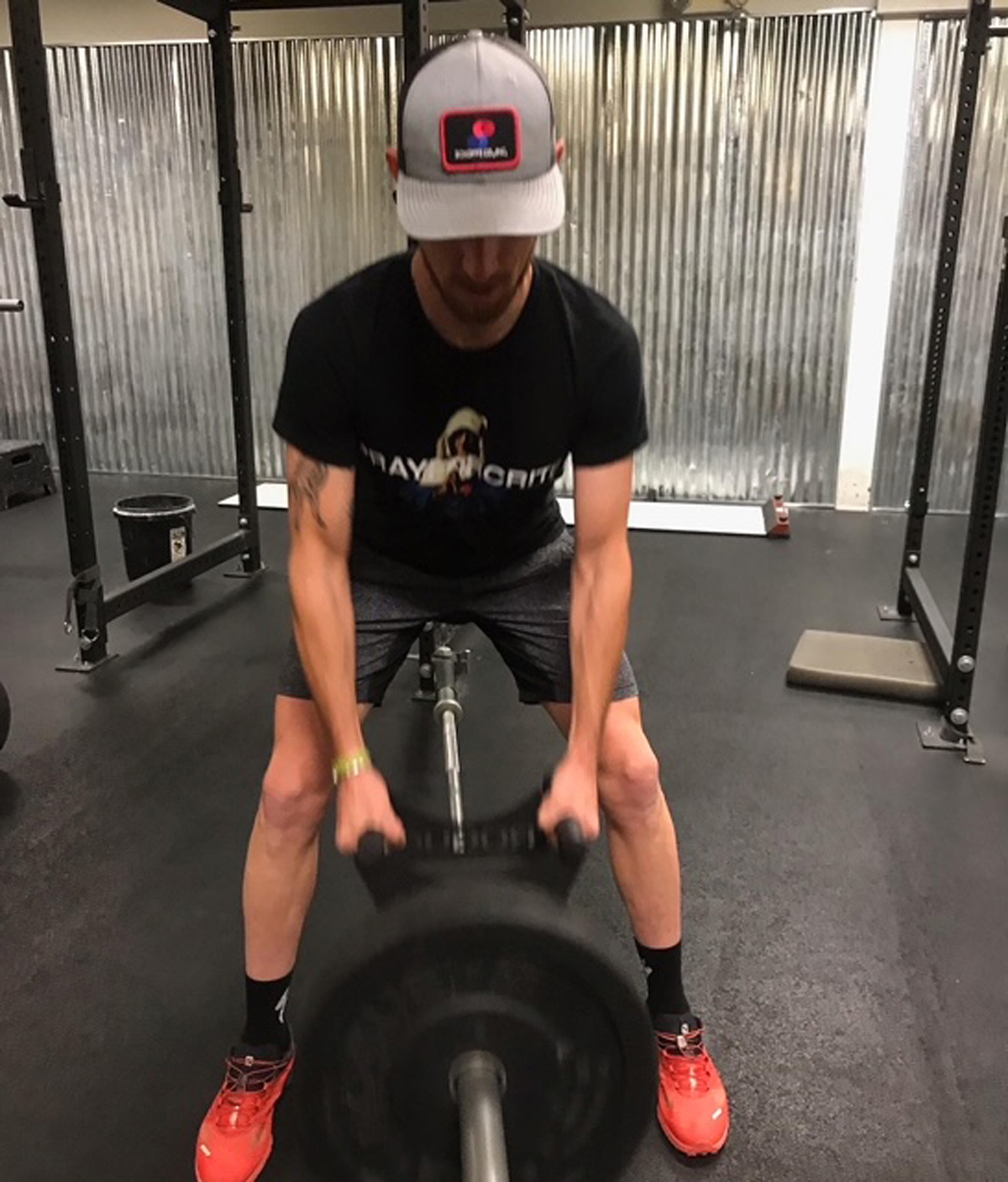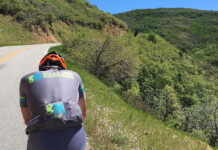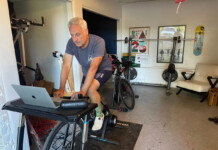By Pat Casey — The cold, dark, shortened days of winter are upon us. There’s no arguing that everyone, particularly endurance athletes, benefits from adjustments in their schedules and routines to get the most out of the hours in the day. Life doesn’t slow down, and the feeling of not having enough hours in the day can become overwhelming as our days literally feel like they’re cut in half when we turn our clocks back and our days get even shorter. Adjusting to our new environment requires awareness of many variables, some of which we are seemingly unaware of until they impact us in a negative way. Here are a few tips to help you adjust your circadian clock and your training to have your best winter season yet!
Sleep Cycles, Supplementation and Adjusting to Time Change
There are many cyclists and triathletes out there who thrive on early mornings, and already squeeze every drop of time out of the day. To those of you reading who are already crushing the mornings, I applaud you for taking advantage of additional hours in the day! If you are like me, it takes a significant adjustment to force a change in my daily routine. Recently, I returned home to Salt Lake City after two weeks in Spain where I was fortunate to have a coaching gig with USA Triathlon which brought me over there. I suppose I can also thank this experience for my newfound early morning schedule… After returning, my schedule has been something like this: I wake up at 5 or 6 AM, train, work, and go about my day, but I am exhausted by 8 PM and am in bed by 8:30 or 9.

You might be asking… “But Pat, without a trip to/from Europe to force a change, how am I supposed to trick my body into adjusting to a totally new sleep cycle?” Our bodies and brains are incredibly adaptable, and our circadian clock is trainable just like any other neurochemical change we are trying to make. We are so used to them happening naturally, so adjusting this biological clock takes discipline. However, after 3-4 days you will begin waking up earlier naturally without putting a damper on the rest of your day.
Your Circadian Clock is Trainable
Just like we use Melatonin when we are trying to get to sleep on a long flight, or trying to readjust to a new time zone, we can also use Melatonin to adjust our body clocks to a new routine like getting to sleep earlier than we’re used to. When our bodies prepare for sleep, we naturally produce melatonin as we enter into our sleep cycle. The timing at which this happens can be manipulated through supplementation, but our other routines must also follow this trend to an earlier bedtime. Within an hour of your new ‘goal’ bedtime, stop scrolling Instagram and reading Twitter and put your phone down. When you awaken, begin your day with exercise, instead of scrolling on your phone! The adrenaline release will help combat the fatigue mechanisms and help force the physiological adaptation to shift your adrenal response or “sleep-wake cycle” to an earlier hour in the day. You can even use an artificial light source to down-regulate melatonin and help to synchronize your new sleep-light cycle. Caffeine also helps! All of this will feel like strain initially, but no change comes easily! Our brains are intensely tied to the signals that we send from our habits, so become aware of your habits, take some control by applying these tips, and change your biological clock to get a little more out of each day!
Training your Weaknesses
Cyclists and triathletes alike are notorious for jumping from their “off-season” right back into an aerobic Base Building phase of training. The strain that our bodies are under during a long season of racing and training becomes familiar, and we normalize being in a heightened state of physiological stress. Athletes often perceive that they have lost a huge amount of aerobic fitness after returning from a break, experiencing a reduced tolerance to hard aerobic efforts, a higher perceived exertion at a familiar pace or power output, and generally feeling “deconditioned”. In reality, we don’t lose as many mitochondria as we might think. Even though we aren’t able to ride as hard as we could in August, a slight deconditioning and recovery phase of our annual training is a healthy part of the cycle.

Instead of working yourself into a catabolic mess and going right back to a structured set of intervals each week, let your body absorb some new stresses to improve areas that will correspond to your training later! If you are a long-hour endurance athlete, chances are you have plenty of aerobic capacity. This is not to suggest in any way that you stop cycling or performing some form of aerobic conditioning in the winter months. We need to maintain the functionality of our mitochondria in skeletal muscle and our aerobic fitness. But we can all agree that introducing a new stimulus is essential for growth in all areas of life, and (not to sound like a broken record but…) endurance athletes need to be adding strength training to their training program.
Planning Matters and Coaching Helps
If you choose to hire a personal trainer/strength and conditioning coach, or just want to explore spending time in the gym, it’s important to reduce the overall time you’re spending performing aerobic work and allow your body to absorb the adaptations to lifting weights and gaining strength. Every athlete has different needs. If your goal is to gain strength, power, and to become a more resilient athlete, consider taking a more individualized approach to your winter training. It’s easy to follow the masses and do what your teammates are doing. There is a reason the best riders and triathletes in the world take a step back and shift their focus on building strength and tensegrity – it pays dividends, particularly when we progressively load our bodies with various physiological and physical stresses throughout a season.
Strength and endurance are oil and water, meaning the body cannot effectively adapt to both at the same time with quality. Not sure where to start? Reach out to a coach to schedule a consultation and help get you on track this winter.







